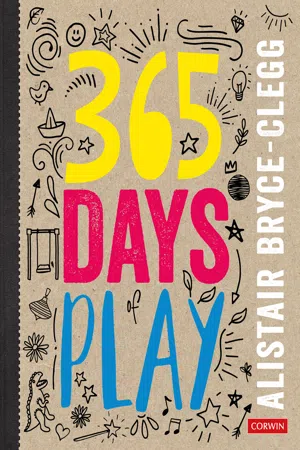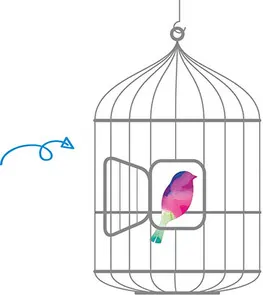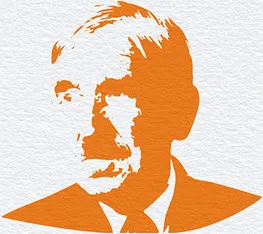
This is a test
- 408 pages
- English
- ePUB (mobile friendly)
- Available on iOS & Android
eBook - ePub
365 Days of Play
Book details
Book preview
Table of contents
Citations
About This Book
Thoughtfully curated by bestselling author andearly yearsconsultantAlistair Bryce-Clegg, this beautiful Pinterest-worthy book is brimming with 365 days worth of inspiration for early years practitioners. He draws on quotes, images, the thoughts of education and child development thinkers and the work of contemporary practitioners to create a picture of children?s play today. Whether it?s sitting down with your morning cup of coffee or as you wind down for the day, this beautifully designed full colour bookis here tomotivate and inspire you and your practice all year through.
Frequently asked questions
At the moment all of our mobile-responsive ePub books are available to download via the app. Most of our PDFs are also available to download and we're working on making the final remaining ones downloadable now. Learn more here.
Both plans give you full access to the library and all of Perlego’s features. The only differences are the price and subscription period: With the annual plan you’ll save around 30% compared to 12 months on the monthly plan.
We are an online textbook subscription service, where you can get access to an entire online library for less than the price of a single book per month. With over 1 million books across 1000+ topics, we’ve got you covered! Learn more here.
Look out for the read-aloud symbol on your next book to see if you can listen to it. The read-aloud tool reads text aloud for you, highlighting the text as it is being read. You can pause it, speed it up and slow it down. Learn more here.
Yes, you can access 365 Days of Play by Alistair Bryce-Clegg in PDF and/or ePUB format, as well as other popular books in Education & Early Childhood Education. We have over one million books available in our catalogue for you to explore.
Information
May
I like playing in the texture kitchen because I like making something that turns Miss Littlewood into a frog and that makes me happy.
Iyda, Age 5
Countering Gender Stereotypes

In chapter 6 of Challenging Gender Stereotypes in Education, Maria Kambouri-Danos discusses the importance of countering gender stereotypes through careful consideration of play provision in early years settings:
It is important for professionals working with young children to think about how different areas of play provision can be set up and used to counter gender stereotypes.For example, the kind of materials provided in the ‘home corner’ will affect the context the children will choose for their play and the roles that they will act out. When choosing the materials, it is important to make gender neutral choices (texture, colours, themes) and involve the children in the process of selecting these materials to ensure all children will be interested in playing.
John Dewey (1859–1952)
John Dewey was an American-born educationalist whose thinking was very radical for its time. He was an advocate for a child-centred approach to learning, believing that what a child experienced both in and outside of their school or setting had a significant impact on what and how they learned. Dewey suggested that teachers spent a significant amount of time getting to know the individual preferences and experiences of their pupils.
They could then go on to specifically shape the learning they provided to the needs of the child. He promoted the idea of a varied curriculum where children’s interests would help shape the curriculum.
For Dewey the role of the adult was seen as facilitator for learning tailored to the children as opposed to someone who delivers the same learning to all of the children in the same way. He was very aware that children’s curiosity was a driving force for their motivation to learn and the more unique the learning to be to them, the more curious they would be and the more success they would have.

Play keeps us vital and alive. It gives us an enthusiasm for life that is irreplaceable. Without it, life just doesn’t taste good– Lucia Capocchione
’Necessity may be the mother of invention, but play is certainly the father.’Roger von Oech
This Little Piggy
- This little piggy went to market.
- This little piggy stayed at home.
- This little piggy had roast beef
- But this little piggy had none.
- And this little piggy went
- “Wee wee wee”
- All the way home
This Little Piggy Went to Market - Tradition will tell us that this nursery rhyme details the selling of pigs at the market. Farmers would go through different routines in order to get their pigs ready for sale, such as feeding them beef to make them fatter for eating and breeding and even not feeding them at all to ensure that when they are brought to market, there is a smaller chance of them bringing a disease.
All of these different ideas feature in this rhyme. If the pigs weren’t sold then that was bad news for the farmer, hence ‘this little piggy’ squealing, all the way home.
I Blame the Victorians…
The Victorians were really keen on formal schooling and in 1880 made it compulsory for all children to go to school. They also thought that learning would be done best in silence, sitting still for long periods of time. Play only happened at designated ‘playtimes’. It was certainly not seen as a means of learning. If this approach to learning wasn’t for you, then systematic humiliation and harsh physical punishment seemed to be the order of the day. It wasn’t until 1986 that the UK banned this type of punishment in the state sector. Even though corporal punishment has thankfully gone, there are a remarkable number of Victorian principles of education that still exist in our schools today.
The Victorians did not have access to the information that we have about how our brains develop and what sort of learning is appropriate at each stage of a child’s development.
They wanted to achieve:
- Standardisation
- Linearity
- Control
- Conformity
- Compliance
I would argue that to equip our children for the society of tomorrow it is far more important that they have:
- Creativity
- Ingenuity
- Mental Agility
- Adaptability
- Sociability
A play-based approach to learning will tick all of those boxes and a great deal more!

What is Play?
Any spontaneous or organised activity that provides enjoyment, entertainment, amusement or diversion. It is essential in childhood for the development of a normal personality and as a means for physical, intellectual, and soc...
Table of contents
- Cover
- Half Title
- Publisher Note
- Title Page
- Copyright Page
- Table of Contents
- About Me …
- About this book
- January
- February
- March
- April
- May
- June
- July
- August
- September
- October
- November
- December
- References